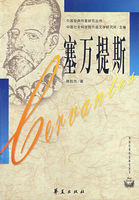Madame Colleville was deeply affected by the death of young Gondreville; she felt, she said, the finger of God. In 1824 she turned over a new leaf, talked of economy, stopped her receptions, busied herself with her children, determined to become a good mother of a family; no favorite friend was seen at her house. She went to church, reformed her dress, wore gray, and talked Catholicism, mysticism, and so forth. All this produced, in 1825, another little son, whom she named Theodore. Soon after, in 1826, Colleville was appointed sub-director of the Clergeot division, and later, in 1828, collector of taxes in a Paris arrondissement. He also received the cross of the Legion of honor, to enable him to put his daughter at the royal school of Saint-Denis. The half-scholarship obtained by Keller for the eldest boy, Charles, was transferred to the second in 1830, when Charles entered the school of Saint-Louis on a full scholarship. The third son, taken under the protection of Madame la Dauphine, was provided with a three-quarter scholarship in the Henri IV. school.
In 1830 Colleville, who had the good fortune not to lose a child, was obliged, owing to his well-known attachment to the fallen royal family, to send in his resignation; but he was clever enough to make a bargain for it,--obtaining in exchange a pension of two thousand four hundred francs, based on his period of service, and ten thousand francs indemnity paid by his successor; he also received the rank of officer of the Legion of honor. Nevertheless, he found himself in rather a cramped condition when Mademoiselle Thuillier, in 1832, advised him to come and live near them; pointing out to him the possibility of obtaining some position in the mayor's office, which, in fact, he did obtain a few weeks later, at a salary of three thousand francs. Thus Thuillier and Colleville were destined to end their days together. In 1833 Madame Colleville, then thirty-five years old, settled herself in the rue d'Enfer, at the corner of the rue des Deux-Eglises with Celeste and little Theodore, the other boys being at their several schools. Colleville was equidistant between the mayor's office and the rue Saint-Dominique d'Enfer. Thus the household, after a brilliant, gay, headlong, reformed, and calmed existence, subsided finally into bourgeois obscurity with five thousand four hundred francs a year for its sole dependence.
Celeste was by this time twelve years of age, and she promised to be pretty. She needed masters, and her education ought to cost not less than two thousand francs a year. The mother felt the necessity of keeping her under the eye of her godfather and godmother. She therefore very willingly adopted the proposal of Mademoiselle Thuillier, who, without committing herself to any engagement, allowed Madame Colleville to understand that the fortunes of her brother, his wife, and herself would go, ultimately, to the little Celeste. The child had been left at Auteuil until she was seven years of age, adored by the good old Madame Lemprun, who died in 1829, leaving twenty thousand francs, and a house which was sold for the enormous sum of twenty-eight thousand. The lively little girl had seen very little of her mother, but very much of Mademoiselle and Madame Thuillier when she first returned to the paternal mansion in 1829; but in 1833 she fell under the dominion of Flavie, who was then, as we have said, endeavoring to do her duty, which, like other women instigated by remorse, she exaggerated. Without being an unkind mother, Flavie was very stern with her daughter. She remembered her own bringing-up, and swore within herself to make Celeste a virtuous woman. She took her to mass, and had her prepared for her first communion by a rector who has since become a bishop. Celeste was all the more readily pious, because her godmother, Madame Thuillier, was a saint, and the child adored her; she felt that the poor neglected woman loved her better than her own mother.
From 1833 to 1840 she received a brilliant education according to the ideas of the bourgeoisie. The best music-masters made her a fair musician; she could paint a water-color properly; she danced extremely well; and she had studied the French language, history, geography, English, Italian,--in short, all that constitutes the education of a well-brought-up young lady. Of medium height, rather plump, unfortunately near-sighted, she was neither plain nor pretty; not without delicacy or even brilliancy of complexion, it is true, but totally devoid of all distinction of manner. She had a great fund of reserved sensibility, and her godfather and godmother, Mademoiselle Thuillier and Colleville, were unanimous on one point,--the great resource of mothers--namely, that Celeste was capable of attachment.
One of her beauties was a magnificent head of very fine blond hair;but her hands and feet showed her bourgeois origin.
Celeste endeared herself by precious qualities; she was kind, simple, without gall of any kind; she loved her father and mother, and would willingly sacrifice herself for their sake. Brought up to the deepest admiration for her godfather by Brigitte (who taught her to say "Aunt Brigitte"), and by Madame Thuillier and her own mother, Celeste imbibed the highest idea of the ex-beau of the Empire. The house in the rue Saint-Dominique d'Enfer produced upon her very much the effect of the Chateau des Tuileries on a courtier of the new dynasty.
Thuillier had not escaped the action of the administrative rolling-pin which thins the mind as it spreads it out. Exhausted by irksome toil, as much as by his life of gallantry, the ex-sub-director had well-nigh lost all his faculties by the time he came to live in the rue Saint-Dominique. But his weary face, on which there still reigned an air of imperial haughtiness, mingled with a certain contentment, the conceit of an upper official, made a deep impression upon Celeste. She alone adored that haggard face. The girl, moreover, felt herself to be the happiness of the Thuillier household.















